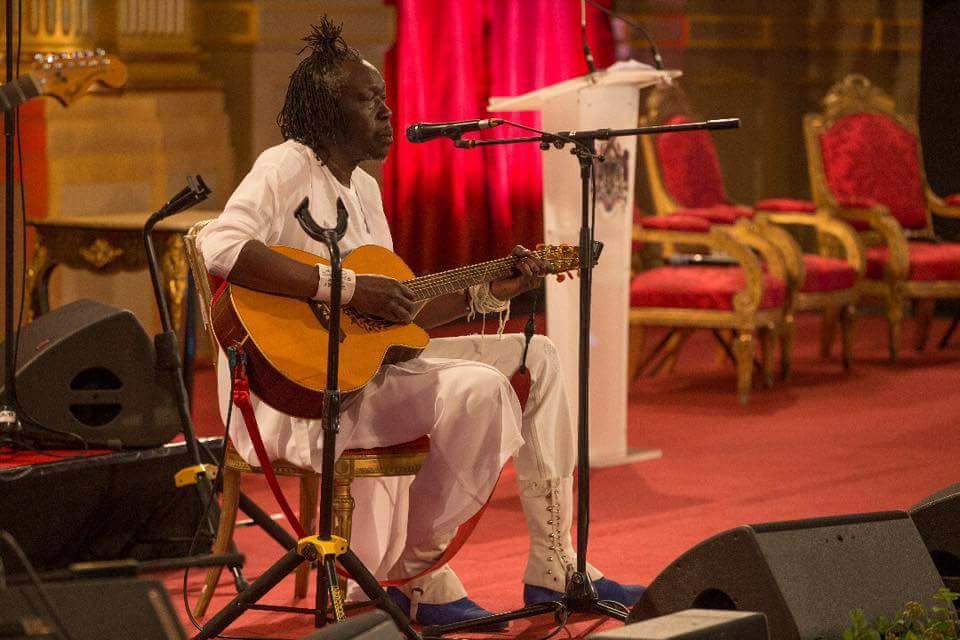The Acholi cultural leader, Rwot David Onen Acana II has strongly warned against plans to cremate the body of the Ugandan born legendary international musician, Geoffrey Oryema who died recently.
Oryema died in a hospital in Paris, France at the age of 65. He had emerged as a globally acclaimed musician who had performed in numerous cities across the globe.
His family said he had been for long battling cancer.
A week after his passing, there is controversy on how the musician should be buried, with his cultural customs custodians opposed to the idea of cremating him.
The Rwot says that Oryema was an Acholi by heritage and that his traditions do not permit the cremation of a dead person to ashes. The leader says such an act is likely to result into bad omen.
“The late Geoffrey Oryema is an Acholi by birth and heritage. Most of his life and his works depicted the ingenuity of the Acholi heritage and therefore even in death, it is important to take note of,” Rwot David Onen Acana II wrote in his June 28 letter addressed to the family of the late Oryema.
He said that as an Acholi, the late Oryema is bound by the inherent values of the Acholi people because at no one time did he denounce being an Acholi.
“Human cremation is an abominable act to us the Acholi people which has serious cultural consequences and is not acceptable in our culture”.
Cremation is the disposal of a dead person’s body by burning it to ashes, typically after a funeral ceremony. Cremated remains, also known as “cremains” or simply “ashes”, may be buried or interred in memorial sites or cemeteries, or they may be retained by relatives and dispersed in various ways.
While the practice is common in Europe, America and Asia, it is still alien to many African countries, Uganda in particular.
The practice, according to the Rwot, constitutes the desecration of a person that is unacceptable “because the Acholi believe in life after death and the important role the dead play in our society”.
It is however reported that in his will, the late singer demanded that he be cremated upon death.
However, the Rwot says that legally binding as a will might be, if it hurts the common good, “it can not be respected or executed”
“In this case, it hurts the vast majority of the family and the Acholi people, thus setting a precedence for cultural decimation of our people,” the Rwot further said in his letter.
“It is therefore important to look at the common good and avoid creating situations that have long standing implication to society”.
However, the family of the late Oryema in response have said that they were not involved in the plan to cremate Oryema’s body.








